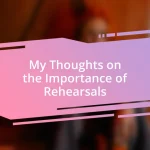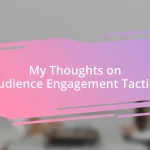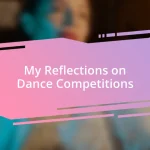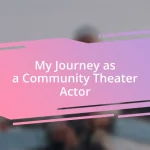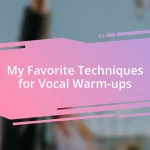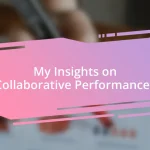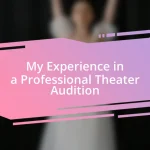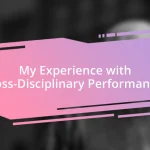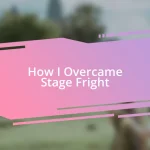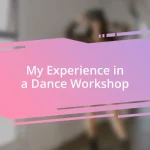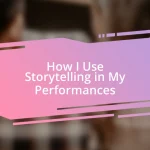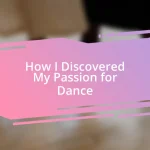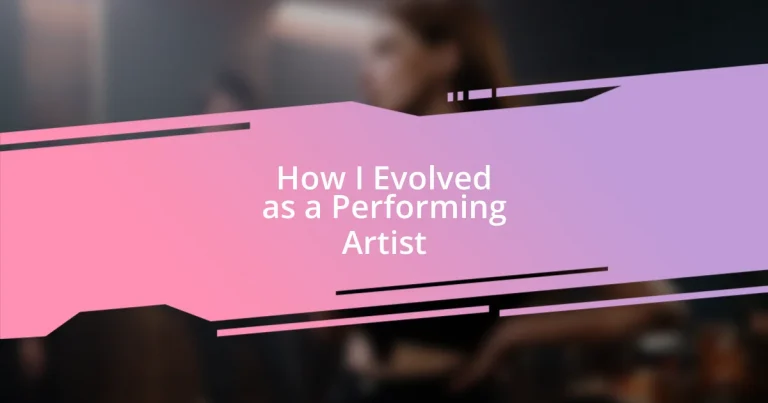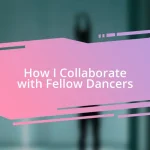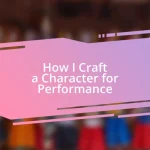Key takeaways:
- The journey of embracing feedback transformed criticism from a fear into a tool for growth, emphasizing the importance of separating personal identity from professional critique.
- Developing a versatile skill set, including improvisation and learning new styles, enhanced adaptability and enriched artistic identity, reinforcing the value of stepping outside one’s comfort zone.
- Overcoming challenges and navigating setbacks cultivated resilience, teaching that failures can lead to breakthroughs and deepening the joy of performance amidst pressure.
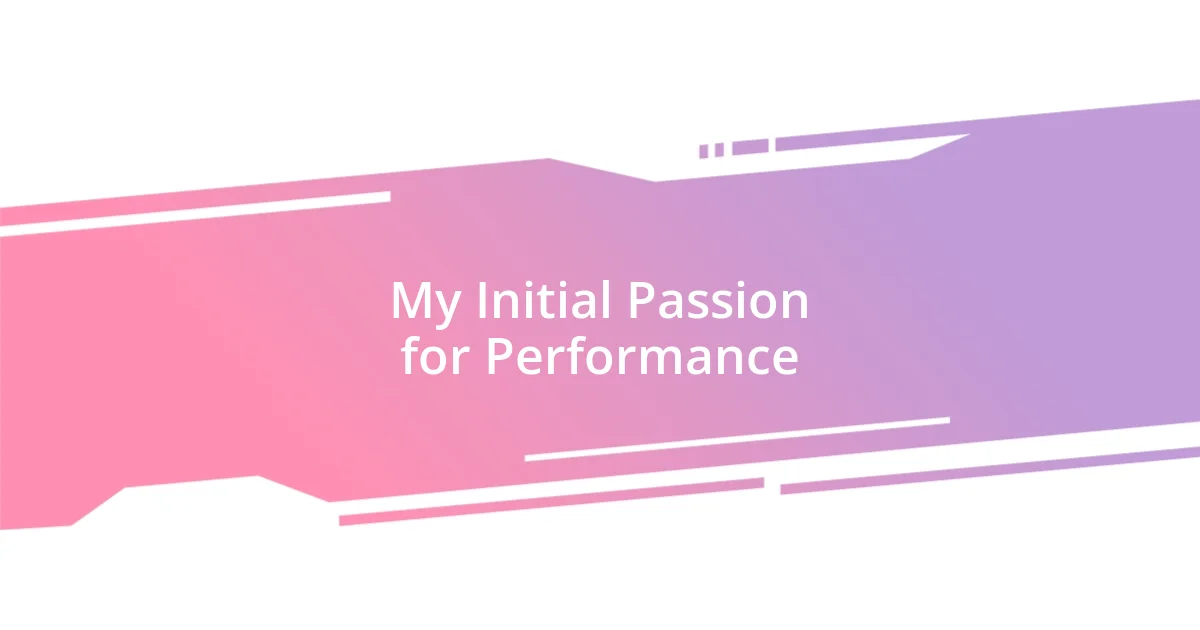
My Initial Passion for Performance
From a young age, I was captivated by the magic of performance. I remember vividly the first time I stood on stage for a school play; my heart raced, yet there was an exhilarating thrill in sharing a part of myself with others. Do you recall a moment when you felt that rush? It’s an unforgettable sensation.
As I continued to explore various forms of art, I often found myself daydreaming about performing. I would practice for hours in front of the mirror, imagining vibrant applause and the glow of stage lights. Each small success, whether it was nailing a monologue or hitting a high note, fueled my desire to immerse myself deeper into this world.
I’ve encountered challenges along the way, but those early moments of joy reminded me why I love performing. They became the bedrock of my artistic journey. Have you ever found a singular passion that feels like home? For me, that passion was, and still is, performance.
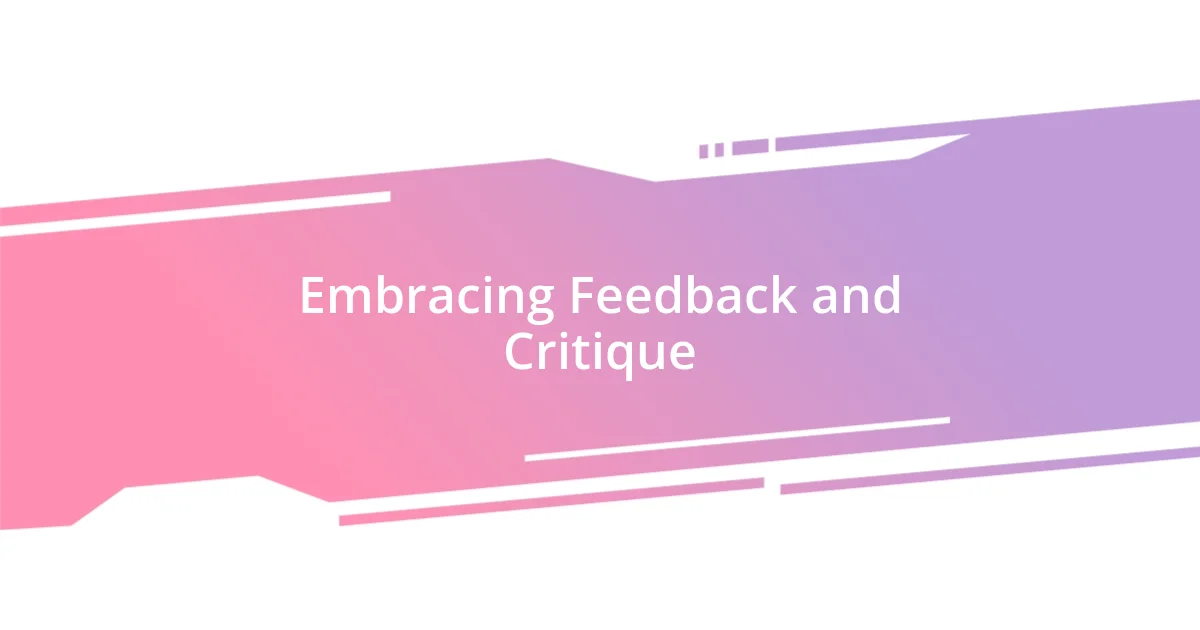
Embracing Feedback and Critique
Embracing feedback and critique has been a transformative part of my journey as a performing artist. In the beginning, I dreaded criticism; it felt like an attack on my identity rather than valuable guidance. The turning point came when a mentor pointed out that each note of feedback was a stepping stone for growth. I remember receiving a critique about my delivery during a pivotal performance; I initially felt deflated, but I chose to focus on the insights rather than dwell on the sting.
Here are some ways I learned to embrace feedback positively:
-
Separate the Personal from the Professional: I had to remind myself that criticism is not a reflection of my worth as a person, but rather a tool for honing my craft.
-
Active Listening: During feedback sessions, I started to genuinely listen and ask questions to understand the perspective of others, which offered me fresh insights.
-
Gratitude for Growth: I began to view feedback as a gift, realizing that it often stemmed from the desire to see me succeed.
-
Practice Patience: I learned that improvement takes time, and even small changes based on critique can lead to significant progress.
Embracing critique has been a journey toward self-discovery, turning what once felt like fear into a pathway for mastery. With every piece of feedback, I found a new opportunity to refine my skills, helping me evolve more than ever as an artist.
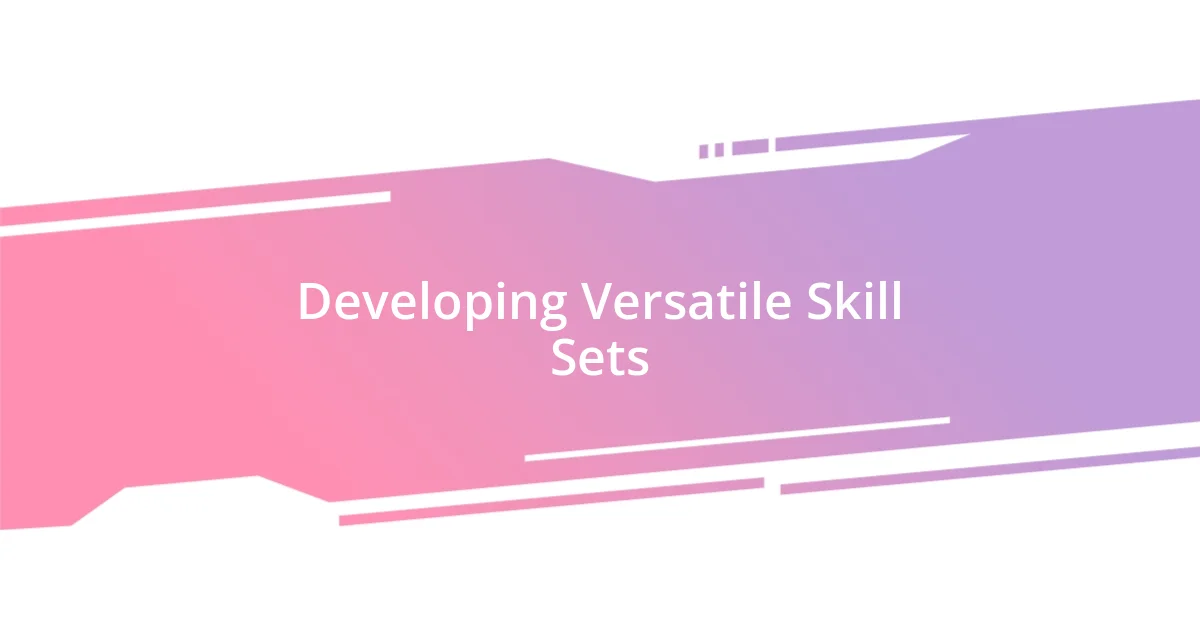
Developing Versatile Skill Sets
Developing a versatile skill set is an essential part of my evolution as a performing artist. I distinctly recall a moment during a collaborative workshop where I was asked to try improv alongside other actors. At first, I felt apprehensive—what if I stumbled? But as I embraced the spontaneity, I discovered a joy that came from trusting my instincts and adapting on the spot. Have you ever found yourself in a position where you had to think on your feet? That experience taught me that versatility isn’t just about mastering techniques; it’s about being open to new expressions and forms.
I’ve learned it’s vital to step outside my comfort zone to build versatility. For instance, during a dance class that focused on hip-hop, I felt clumsy and out of my element. Yet, pushing through those insecurities was illuminating. Gaining rhythm and body awareness in a new style ultimately made me a better performer. It reinforced the idea that every skill adds a layer to my artistic identity, allowing me to integrate diverse elements into my performances.
The journey towards becoming a versatile artist often feels like piecing together a mosaic. Each new skill I acquire not only enhances my work but also shapes my creative voice. Whether it’s learning a new instrument or experimenting with different genres, I’ve found that these experiences deeply enrich my craft. What new skill might you try to elevate your own artistry? Remember, every attempt holds the potential for growth.
| Skill Development | Impact on Performance |
|---|---|
| Improv | Increases adaptability and spontaneity |
| Dance Styles | Improves physical awareness and expression |
| Instrument Learning | Enhances musicality and creativity |
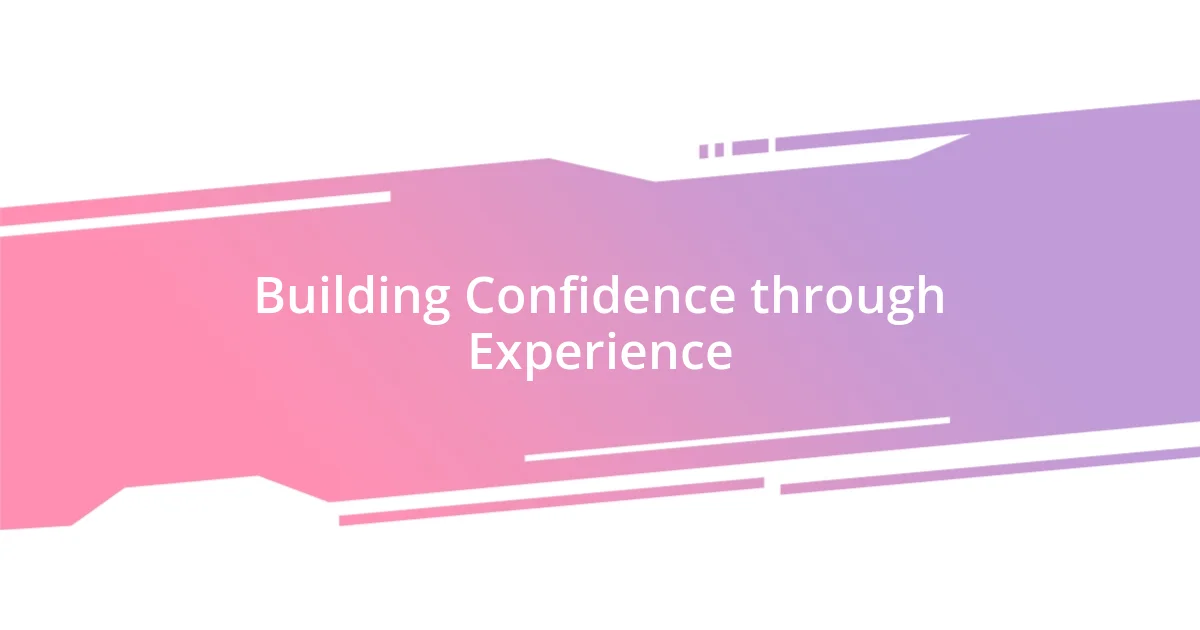
Building Confidence through Experience
Building confidence as a performing artist is an intrinsic part of my journey, enhanced significantly through experience. I vividly remember my first solo performance; my hands trembled, and the spotlight felt blinding. Yet, as I stepped onto the stage and looked into the audience, something remarkable happened—I felt a surge of energy from their presence. I realized then that each performance is a chance not just to showcase my skills, but to connect deeply with others, which, in turn, bolstered my confidence.
There was a time when I found myself regularly participating in open mic nights. The initial fear of judgment loomed large, but with every performance, I became more relaxed. With each song, I discovered nuances about my voice and stage presence I had never recognized before. Have you ever pushed through a fear that left you feeling liberated? For me, performing in those intimate settings taught me that vulnerability is a strength, and engaging with an audience allows for a shared experience that empowers not just me, but them as well.
As time went by, I learned the importance of celebrating small victories. After a particularly nerve-wracking show where I received an enthusiastic round of applause, I took a moment to soak it in. I remember thinking, “This is validation that my hard work is paying off.” Reflecting on these moments, I realized that confidence isn’t just about conquering fear; it’s about recognizing growth and embracing the journey. What achievements, no matter how small, can you celebrate today to foster your own confidence? Each step forward is a testament to your evolving artistry.
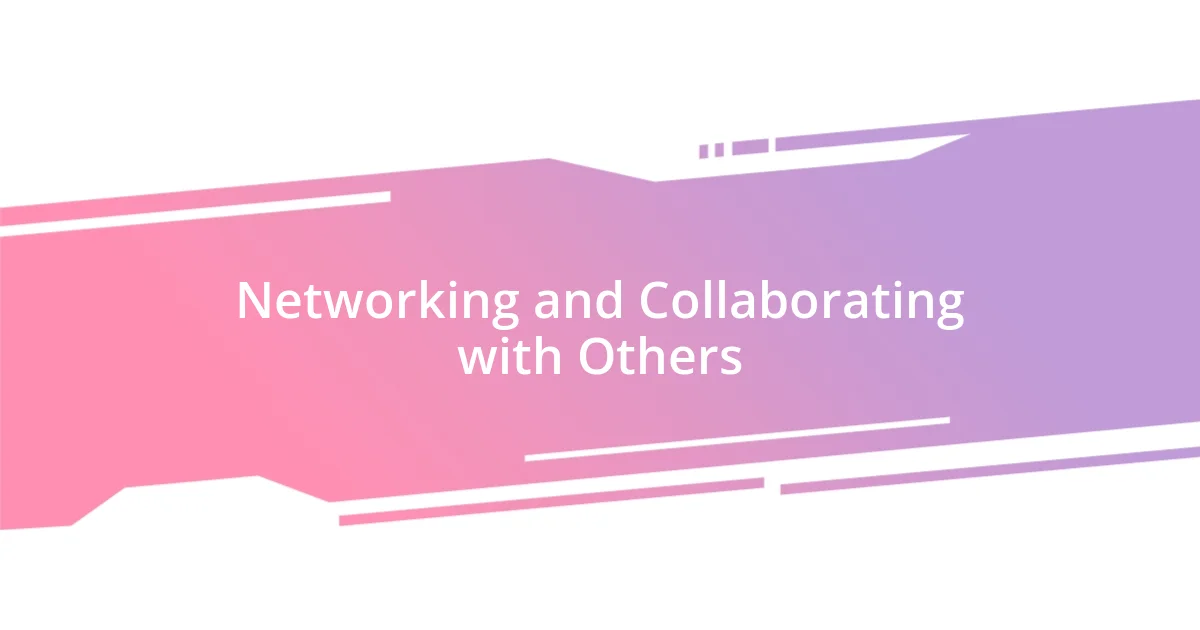
Networking and Collaborating with Others
Networking and collaborating with others has been a game-changer in my journey as a performing artist. I still remember the first time I attended a local arts festival, feeling nervous yet excited to meet fellow creatives. It wasn’t long before I struck up a conversation with a dancer who offered to collaborate on a project. That simple interaction transformed my approach to performance; it opened my eyes to the richness that diverse perspectives bring to my craft. Have you ever experienced that spark when sharing ideas with another artist?
In my experience, collaboration goes beyond just adding new skills; it’s a chance to challenge and inspire one another. I once partnered with a visual artist to create a multimedia performance. As we explored our concepts, I felt my creativity flourish. The merging of dance and visual art unveiled ideas I never would have considered alone. How often do you engage with other artists to expand your own creative boundaries? I’ve found that these partnerships ignite a passion that propels me forward.
I’ve discovered that networking isn’t just about making connections—it’s about building relationships that nurture and support each other’s growth. After connecting with a fellow musician at an open mic, we became accountability partners, regularly sharing progress on our individual projects. This exchange kept both of us motivated, turning dreams into tangible achievements. Reflecting on these collaborations, it’s clear that camaraderie in the arts can transform solitary endeavors into shared journeys filled with inspiration and purpose. What community might you tap into to inspire your artistry?
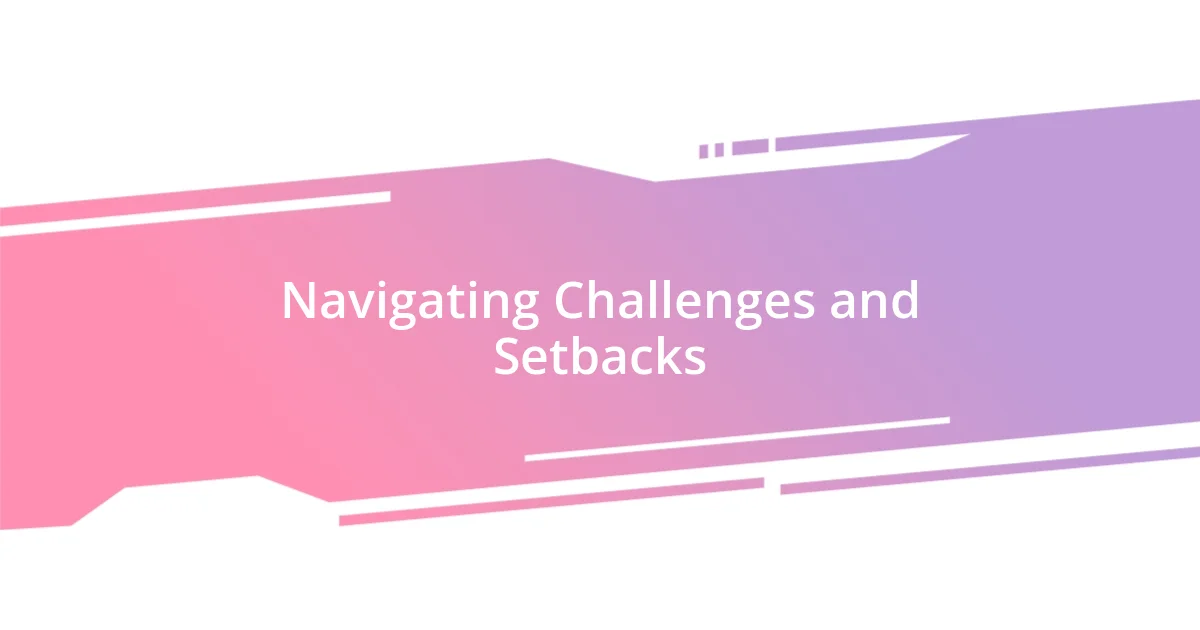
Navigating Challenges and Setbacks
Navigating challenges and setbacks is an inevitable part of growth as a performing artist. I recall a particular performance that went horribly wrong—my mind went blank, and I stumbled over my lines. It felt devastating in the moment, but looking back, I recognize that experience was a crucial turning point; I learned how to regain my composure under pressure. Have you ever faced a moment where everything seemed to unravel? For me, those instances became valuable lessons, teaching me resilience and the importance of bouncing back stronger.
There were countless auditions where I felt like an outsider looking in. Each rejection stung, and I often questioned whether I belonged in this competitive world. However, rather than letting those setbacks define me, I used them to fuel my passion. I remember turning a particularly harsh critique into motivation to refine my craft. Has a setback ever propelled you toward a breakthrough? My experiences taught me that setbacks are often the stepping stones to discovering what truly drives us and enhancing our artistry.
Additionally, I encountered situations where the pressure to succeed began to overshadow my love for performance. During such times, I found solace in revisiting the core reasons I started this journey. Engaging in impromptu jam sessions with friends or revisiting my favorite songs reminded me of the joy and freedom that performing brought me. How do you reconnect with your passion when the going gets tough? Embracing those moments always reignited my creativity and deepened my appreciation for the art of performance.
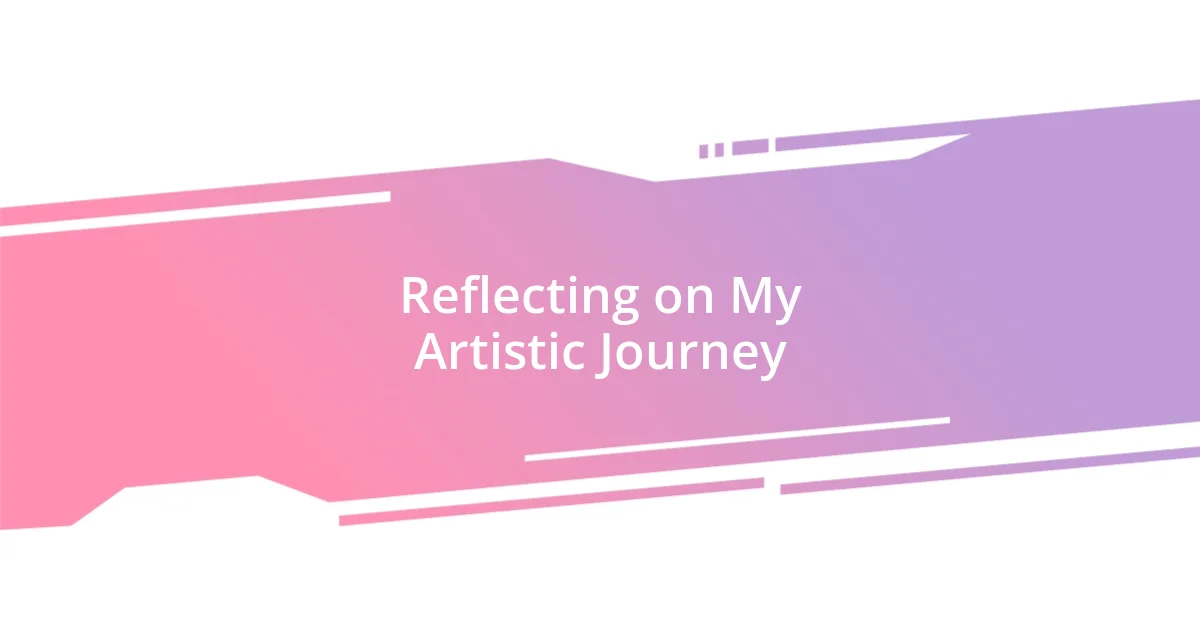
Reflecting on My Artistic Journey
Reflecting on my artistic journey often brings back memories of those early, uncertain days when I was still finding my voice. I recall standing backstage, heart racing as I prepared to showcase my first solo performance; I could feel the weight of my dreams pressing down on me. That moment taught me the importance of vulnerability, not just as a performer but as a person. Have you ever felt that blend of fear and excitement just before taking the leap?
Looking back, I realize that each performance was more than just an act; it was an exploration of who I was at that time. I vividly remember the thrill of experimentation during rehearsals, where I let my emotions guide my movements instead of sticking strictly to choreography. This shift transformed my stage presence. It was as if a light bulb had switched on, revealing the connection between my inner self and my artistry. Isn’t it fascinating how those moments of self-discovery can redefine our creative journeys?
I also find it enlightening to consider the evolution of my artistic style. There was a period when I felt pressed to conform to what was popular or expected, and it stifled my creativity. I vividly recall a performance where I forced myself to adhere to a formula that didn’t resonate with me, and the feedback was lukewarm at best. Realizing that authenticity is key to connecting with an audience was a significant turning point for me. Have you ever felt torn between fitting in and being true to yourself? This journey of self-reflection has shaped not just my art, but also my confidence in expressing my unique perspective.
